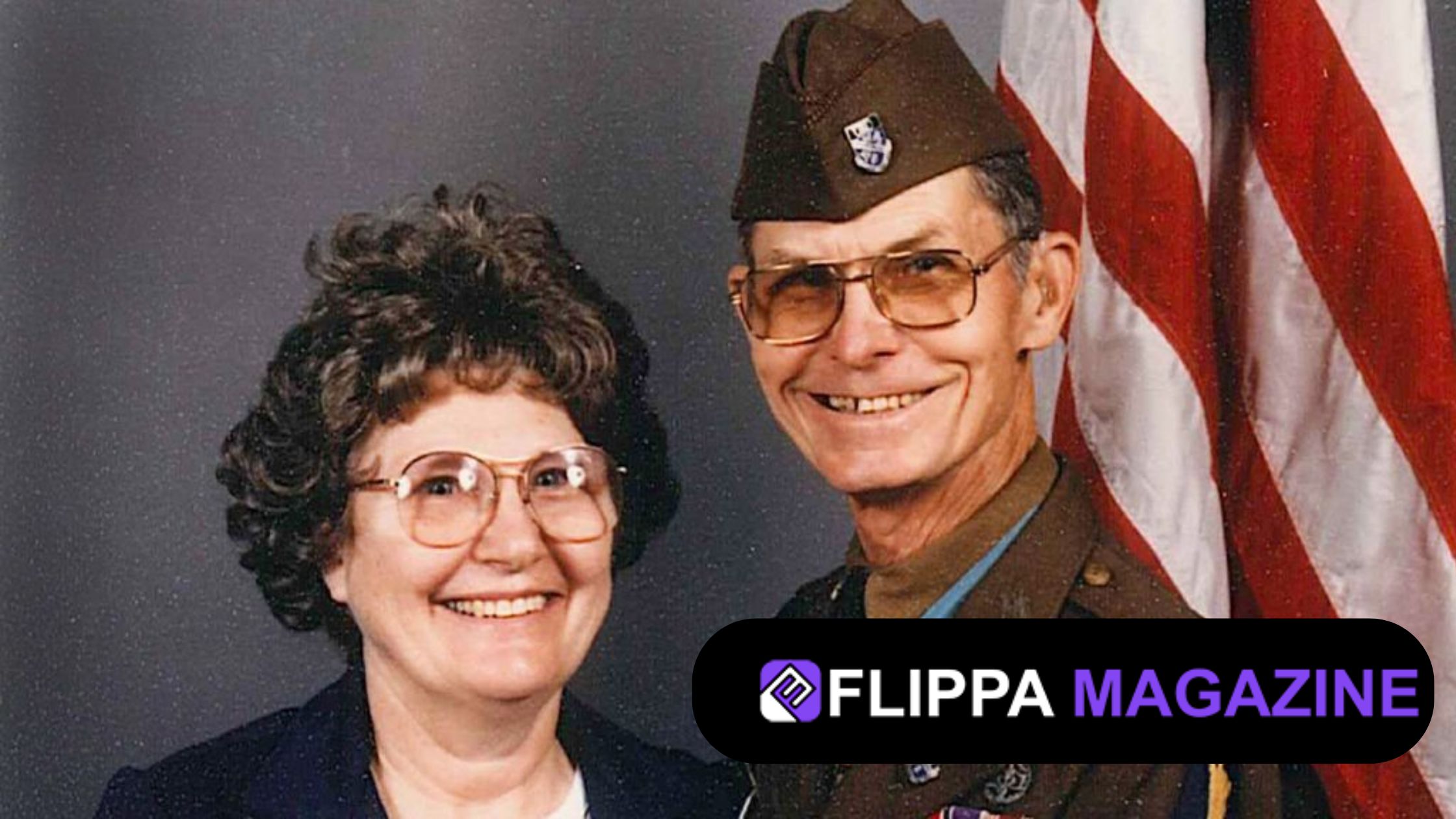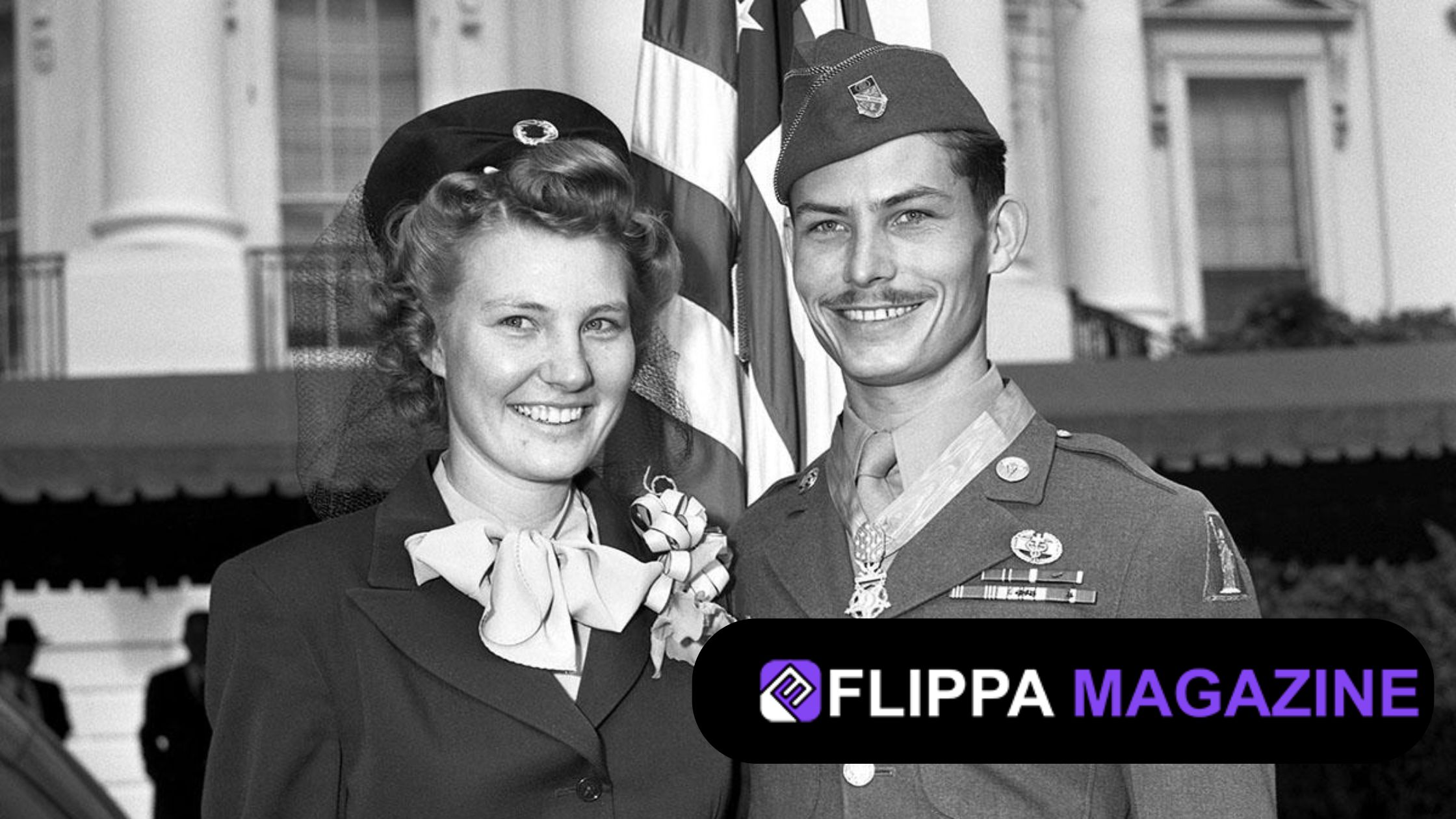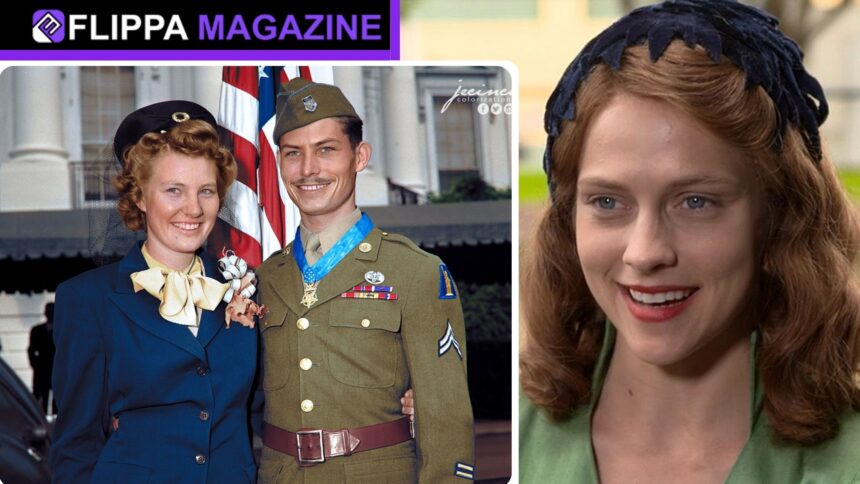While Desmond Doss’s battlefield heroics have been immortalized in books and films, including Hacksaw Ridge, the name Dorothy Doss often appears as a footnote. But her role was pivotal. She was not just Desmond’s wife — she was his spiritual anchor, emotional companion, and unwavering supporter through the triumphs and trials that defined his extraordinary life.
Born into a humble family in the American South, Dorothy’s values mirrored those of Desmond — faith, integrity, and service. Her journey intertwined with his at a time when the world was at war, and together, they would create a legacy of faith and courage that transcends generations.
Quick Bio Table: Key Facts About Dorothy Doss
| Attribute | Details |
|---|---|
| Full Name | Dorothy Pauline Schutte Doss |
| Known For | Wife of WWII hero Desmond Doss |
| Birth Year | 1920 |
| Birthplace | Lynchburg, Virginia, USA |
| Faith | Devout Seventh-day Adventist |
| Marriage Date | August 17, 1942 |
| Spouse | Desmond T. Doss (1919–2006) |
| Occupation | Nurse and medical caregiver |
| Children | One son, Desmond “Tommy” Doss Jr. |
| Notable Traits | Compassionate, steadfast, supportive |
| Legacy | Symbol of faith, love, and resilience |
| Death | 1991, in Rising Fawn, Georgia, USA |
.
Early Life and Shared Values
Dorothy Pauline Schutte grew up during a period marked by economic hardship and global uncertainty. Like Desmond, she was raised in a faith-based household where moral conviction and compassion guided every decision. Her early years shaped her into a woman of deep empathy and quiet strength — qualities that would later define her marriage.
When Dorothy met Desmond in the early 1940s, she was working as a nurse trainee, caring for patients with patience and grace. Desmond, known for his gentle spirit and unshakable beliefs, was instantly drawn to her calm presence. Their connection was rooted not in glamour or ambition, but in shared conviction — a belief that service to others was the truest expression of faith.
A Marriage Built on Faith and Purpose
Dorothy and Desmond were married on August 17, 1942, just months before he was drafted into the U.S. Army. Their union was grounded in spiritual strength rather than material comfort. Dorothy believed wholeheartedly in Desmond’s mission to serve his country without bearing arms, a stance that drew both admiration and criticism during wartime.
She once told friends that she admired Desmond’s courage to stand by his beliefs, even when it meant facing ridicule. That respect and understanding formed the foundation of their marriage — one built on mutual trust, faith, and shared sacrifice.
Supporting Desmond’s Convictions During War
When Desmond entered military service as a medic, he faced hostility from fellow soldiers for refusing to carry a weapon. Dorothy’s letters became his lifeline. Her words offered encouragement, grounding him when morale was low and reminding him why he had chosen a path of peace amid chaos.
Her unwavering faith in his convictions gave Desmond the strength to persist. Each time he wrote home, he found in her responses a reflection of his own values — compassion for others, trust in divine protection, and belief that courage wasn’t found in violence, but in saving lives.
The War Years: Faith, Fear, and Fortitude

While Desmond braved the horrors of the Pacific theater, Dorothy faced battles of her own. Like many wartime wives, she lived in constant uncertainty, fearing every knock on the door might bring devastating news. Yet, she remained steadfast in her duties — both as a nurse and as the emotional pillar of her household.
During the infamous Battle of Okinawa, Desmond saved 75 men without firing a single bullet. The story of his heroism would later captivate the nation, but for Dorothy, the moment she learned he had survived was the true miracle. Her prayers, written and spoken daily, had been answered.
Reuniting After War: Healing and New Beginnings
When Desmond returned home, he was hailed as a national hero, but the physical and emotional scars of war were deep. Dorothy became his caregiver and confidant, helping him recover from injuries and trauma. Her nursing background proved invaluable, as she tended to his wounds and helped him regain strength — not just in body, but in spirit.
Their home became a haven of peace, a space where Desmond could finally rest and reflect. Dorothy’s nurturing presence gave him the stability to transition from soldier to civilian, a process that required immense patience and understanding.
A Shared Life of Service and Faith
After the war, the couple settled in Rising Fawn, Georgia, where they lived a simple yet purposeful life. Dorothy continued her work in healthcare, while Desmond became an advocate for faith-based service and conscientious objection. Together, they embodied the principle that true heroism is born from humility and service.
Dorothy was deeply involved in her church and community, volunteering in medical missions and youth ministries. She believed that every act of kindness — no matter how small — could echo eternity. Her life served as a living sermon of compassion.
Quiet Strength Amid Public Recognition
As Desmond received national attention, including his Medal of Honor ceremony with President Harry S. Truman, Dorothy remained grounded. She never sought fame or recognition; instead, she preferred to let Desmond’s story speak for both of them. Yet those close to the couple knew she was the quiet force behind his courage.
Her humility was remarkable. While the public celebrated Desmond’s battlefield heroics, Dorothy celebrated his unwavering faith and moral conviction. Her pride wasn’t rooted in medals or ceremonies, but in the fact that her husband had lived his beliefs without compromise.
Tragedy and Resilience

In the late 1980s, tragedy struck when Dorothy died in a car accident in 1991. The loss devastated Desmond, who had relied on her companionship for nearly half a century. Friends and family recall how deeply her absence affected him; he often spoke of her as his “angel,” the one who sustained him through the darkest days.
Yet even in grief, Desmond found strength in the faith they shared. Their marriage had been built on eternal principles, and he believed their bond would transcend this life. Her passing marked the end of one chapter — but her influence continued to guide him until his own death in 2006.
Dorothy’s Legacy in the Doss Story
Dorothy’s role in the Desmond Doss story is profound, even if understated. Without her, the man the world came to know as the “Hero of Hacksaw Ridge” might never have had the same spiritual endurance or emotional grounding. Her nurturing nature and unwavering belief in Desmond’s mission helped shape his legacy.
She represents countless women who supported soldiers quietly, faithfully, and selflessly — those who carried the weight of war not on battlefields, but in prayers, patience, and perseverance at home.
Final Thoughts: The Woman Who Inspired a Hero
To understand Desmond Doss fully, one must also understand Dorothy Doss — the woman who walked beside him, prayed for him, and lifted him when the world seemed dark. Her faith empowered his, her love fortified his resolve, and her compassion mirrored the very values that defined his heroism.
In remembering Dorothy Doss, we celebrate not only the spouse of a Medal of Honor recipient but a woman whose life embodied the same moral courage, endurance, and faith that her husband lived by. She was, in every sense, a hero of the heart — one whose quiet influence continues to echo through history.
Frequently Asked Questions (FAQs)
1. Who was Dorothy Doss?
Dorothy Doss, born Dorothy Pauline Schutte, was the wife of WWII hero Desmond Doss. She was a nurse and devout Seventh-day Adventist who supported her husband’s faith-based convictions throughout his military and post-war life.
2. How did Dorothy and Desmond Doss meet?
They met in Lynchburg, Virginia, during the early 1940s when Dorothy was training as a nurse. Their shared faith and moral convictions created a deep and lasting bond.
3. When did Dorothy Doss marry Desmond Doss?
They were married on August 17, 1942, shortly before Desmond joined the U.S. Army as a combat medic.
4. Did Dorothy Doss have children?
Yes, Dorothy and Desmond had one son, Desmond “Tommy” Doss Jr.
5. What role did Dorothy play during World War II?
While Desmond served in the Pacific, Dorothy worked as a nurse and maintained correspondence that strengthened his faith and resolve during the war.
6. How did Dorothy Doss die?
Dorothy tragically died in a car accident in 1991 in Rising Fawn, Georgia.
7. What is Dorothy Doss’s legacy today?
Dorothy’s legacy endures as a symbol of faith, love, and steadfast support — a reminder that behind every act of public heroism often stands a quiet, powerful story of devotion.
FOR MORE : FLIPPAMAGAZINE












